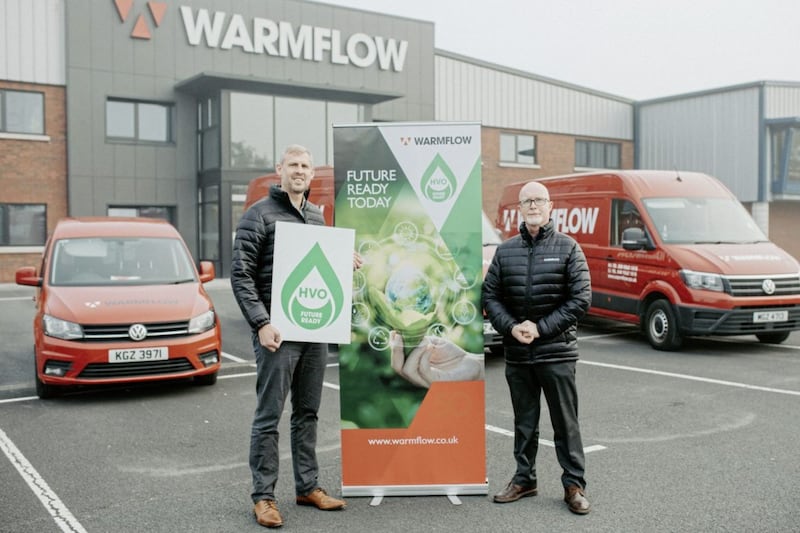LOCAL government and public bodies have started testing biofuel for both transport and heating purposes in a bid to cut Northern Ireland’s significant dependency on kerosene and diesel.
HVO (hydrotreated vegetable oil) has been backed by some industry insiders as a potential solution for helping slash emissions, with oil burners and diesel vehicles adapted with relatively low cost.
Sourced from waste fats and oils and manufactured by a synthesised process with hydrogen, those advocating its use claim it can cut carbon emissions by up to 90 per cent.
Belfast City Council will this month launch a two-month pilot project to test the effectiveness of HVO on 12 of its vehicles.
It’s understood that the Housing Executive has already commenced a pilot project using HVO to heat a select number of homes.
Around two-in-three households in the north are heated by oil-fired burners, while diesel continues to make-up a significant proportion of the 1.23 million licensed vehicles on the road here.
Stormont is due to publish its new energy strategy for Northern Ireland, which is expected to pave the way for new subsidies to install low carbon heating solutions.
Homeowners in England and Wales will be offered a £5,000 subsidy to switch to heat pumps from next April. But with the costs ranging anywhere from £6,000 to £18,000, some industry insiders are making the case for HVO.
Johnnie Black of Lisburn boiler manufacturer Warmflow said that even with subsidies, the high cost of heat pump systems means the take-up rate in some other countries has been low.
“We sell heat pumps, they’re fantastic for houses that have been designed with certain thermal insulation. They have a huge part in the future,” he said.
“The difficulty is for existing housing stock, which need high temperature.”
His firm is already adapting a range of oil-fired boilers to take HVO.
He said the switch can be done for relatively low cost. But stressed it’s a one-way street, meaning households won’t be able to alternate between kerosene and HVO.
“If you’re using oil at the minute, you probably have a deep retro-hit and need to change your radiators,” he said.
“So this is a green solution that isn’t wood pellet that should fit in Northern Ireland.”
Warmflow also recently adopted HVO for use in its van fleet.

Gary Nicholl of Derry-based Nicholl Fuel Oils installed the north’s first HVO pump in Carryduff earlier this year with plans to roll it out at all group forecourts.
He said when it comes to road transport, infrastructure and cost remain significant barriers to switching to electric in rural parts of the north.
“The big issue in Northern Ireland at the moment is the charging infrastructure, we just don’t have the ability to deliver power in certain areas.
“We’ve built a number of new filling stations over the last few years and in most of them we couldn’t get enough power to put EV chargers in. They didn’t have the capacity on the network.”
He also cited cost, with electric bin lorries currently costing around double that of a diesel engine HGV.
The biggest drawbacks for HVO surrounds its cost and production. Neste in the Netherlands is the main producer of HVO in western Europe. A major switch in the UK and Ireland may require new manufacturing facilities.
HVO for road use also currently taxed at the same rate as DERV.
In fresh guidance published last week, HMRC indicated no plans to introduce special tax arrangements for HVO and biofuels to encourage their use.
But that could change in the near future, with the department of Business, Energy and Industrial Strategy (BEIS) developing a new biomass strategy.
Stating that a mix of new, low-carbon heating solutions will be needed into the future, a UK Government spokesperson told The Irish News: “Biofuels, when sourced correctly and sustainably, can play an important part of this mix.
“Our forthcoming Biomass Strategy will review the likely amount of sustainable biomass available to the UK, including liquid biofuels, and how this could be best used across the economy to achieve our target of reach net zero emissions by 2050.”



